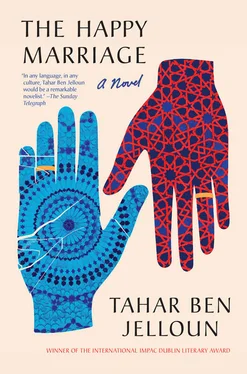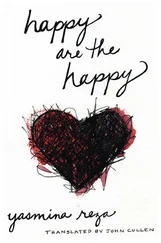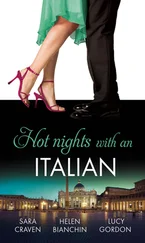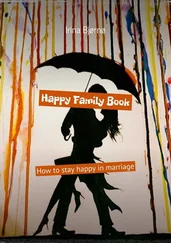Like Yiannis, François had taken part in the delegation that had gone to the suburb of Clermont-Ferrand to ask for the hand of the painter’s future wife. It was a trip that had been very memorable for the painter’s friends, since it had been the first time they’d set foot in such exotic, desolate lands. It was where they’d discovered the evils of those banlieues, where immigrants and their children had been abandoned and stigmatized as dangerous troublemakers.
Yiannis and François had been worrying about their friend for some time now. They’d seen how frustrated and exhausted he’d become after all those arguments, clashes, and tantrums, which were growing more and more frequent. The painter had confided in them, and the two of them — independent and freethinking — were helping him free himself from a marriage that was doomed to go nowhere. And they were afraid for him, because they knew his blood pressure was out of control.
One day, Yiannis had accompanied the painter to a department store where he’d purchased a small voice recorder. Yiannis hadn’t understood why he would need it for work. Perhaps in order to dictate his correspondence? But he knew that his friend never wrote letters.
“My wife contradicts herself all the time, doesn’t know whether she said this or that, so I’ve decided to secretly record what she says so I can play it back to her.”
“But what good will that do?”
“In the hopes that she will one day admit to at least one of her mistakes, so I’ll then have the pleasure to record that admission and play it back to myself, so I can hear her say ‘I’m sorry, I got confused,’ or ‘I was wrong,’ or even ‘You were right,’ or better still ‘I’m sorry, I shouldn’t have,’ to which I’ll add ‘Thank you, darling,’ something which she’s never said to me …”
“I didn’t know things were going so badly between the two of you. I must confess that I find all of this quite shocking. You know, I ended up getting divorced for a lot less than that … I don’t even have much to reproach my ex-wife for … in fact, I was the one who talked a lot of nonsense …”
The painter never had the chance to use his tape recorder. On the only occasion that his wife had admitted she’d made a mistake, he hadn’t had the tape recorder close to hand. He hadn’t even cared about recording her confession. He’d still been reeling from what had happened the previous day: she was driving too fast because she’d been tired and had almost had a bad accident with the whole family in the car. A truck had come at full speed toward them, and her reflexes had barely reacted in time. It had been an incredibly close call. The children had screamed, and the painter had frozen in his seat, incapable of mouthing a word. That terrible moment had been followed by a deep silence. Once they’d gotten back to the house they hadn’t even looked at each other, or exchanged a single word.
Ever since that day, he’d decided he would never again get into a car with her. He didn’t want that kind of life anymore. But he’d come to this conclusion so many times before that it hardly mattered. He needed to act, to react, and, if possible, to escape. What he was sure about was that a mountain of difficulties awaited him before he even got to that decision. That was the time when he’d gone back to the psychiatrist in order to strengthen his immune system, as though he suffered from a disease that gnawed away at his muscles, his mind, and his life.
The psychiatrist had told him:
“You can only hope that your wife decides to get some therapy, but as you know, only she can decide. Nobody — not her friends, and certainly not you — can show her the way forward.”
The painter had smiled, and he’d told the psychiatrist that his wife’s cultural background didn’t predispose her to take such a step. At best, she would seek out charlatans who would recommend some cockamamie ritual, like burning incense during a full moon, or some herbs to put in a corner of their bedroom, or magical formulas written on a piece of paper that she could dilute in water drawn from the wells of Mecca, or talismans to hang off one of the branches of a hundred-year-old tree, or bury next to its roots, or another talisman to throw into the sea on a day when the waves were rough …
This kind of magic was common among illiterate people deeply attached to their ancestral traditions in the mountainous regions of Southern Morocco, and it bolstered their irrationality. It was one of the reasons why his wife had become a member of the sect that followed her infamous friend Lalla, who’d continued her efforts to poison his wife’s relationship with her husband, but especially his family, and who encouraged her to go see those very charlatans, whether they were near or far.
One day, his wife had drunk an herbal infusion that Lalla had given her. The effect had been immediate. They’d been eating lunch with the children when she’d suddenly gone blank, as though she were on the verge of passing out. She’d gotten up, stumbled, and collapsed onto the bed, where she’d fallen into a deep sleep. With his children thrown into distress, the painter had called for a doctor, who’d run over and examined her, coming to the conclusion that her reaction indicated that she’d taken a strong dose of soporifics. The painter had confiscated the herbs in question and had grown angry.
“We don’t know anything about these herbs. Who can say they’re not poisoned? I’m going to wake her up and give her an enema.”
He’d shaken her, and though she could barely open her eyes, she got up and said it was nothing. Then she’d had the good sense to vomit; it made her feel better, but she refused to admit she’d done anything wrong.
Later, when he’d been discussing the incident with a friend, the painter had told him about his grave concerns:
“How can I leave my children with someone who is so irrational and irresponsible?”
This question had a double meaning. On the one hand, he was right to worry, but on the other, it was simply an excuse not to bring this ordeal of a marriage to an end.
When the painter saw his wife in social settings — being friendly, looking beautiful, loved by all, praised by other men for her charm and beauty — and when he heard her speak in a suave voice, when he looked at her without her knowing it, the painter felt torn between admiration and anger. He admired her for being so sweet to others, and yet resented her for being so bitter when it came to their relationship. He’d once believed that she had a split personality disorder, but he’d realized he’d just been deceiving himself. His wife didn’t have two personalities; she merely reserved the best of herself for others, while keeping the worst in store for her husband. She was making him pay for all those years when she’d suffered under his family’s contemptuous gaze, something she’d also experienced with some of his friends. One day, he’d overheard a friend’s wife tell her husband:
“She’s pretty and young, but our friend deserves far better: a real, beautiful woman befitting his stature and status.”
Needless to say, this was hard to hear; the friend and his wife were no longer welcome at their home.
One day, when he’d seen her looking very concerned about the well-being of her little brother, who’d been visiting them at the time, he’d noticed how attentive she’d been with him, giving him a glass of water with some vitamin C because he’d coughed the night before, then ironing his shirt, which she’d washed the day before, asking about his work, slipping some money into his pocket. After her brother had left, the painter had said to her:
“Why don’t you treat me like I was your brother? Make an effort, look at me, I’m not a monster like you think I am, no, I’m just different from other people, I’m an artist, and I need support and understanding, I don’t need you to admire me, that would be too much to ask, and besides, there are some things that one cannot ask for. Just be a little more attentive toward your old husband. He’s not nasty, he’s actually a good man. I too could have a cough or even angina, but you wouldn’t offer me a glass of water with some vitamin C in it, it’s not a big deal, but it’s the little things that would make me happy. In fact, that’s the weak point of our marriage: the lack of happiness! Making the other person happy and vice versa. Unfortunately, both of us have crossed a lot of lines. We don’t respect each other anymore. I’m sorry about that, and I’m just as guilty as you are. I don’t think I’ve ever been disrespectful toward anyone. I’ve been awkward, fickle, not as attentive as I should have been, but I’ve never tried to be disrespectful toward you. But sometimes your anger and the brutality of your actions have pushed me to use words I didn’t even know I could use, words that have never been a part of my vocabulary. You’ve managed to bring out the worst in me, and I’ve done the same to you. I’m not accusing anybody. I’ve always tried to avoid conflicts, but now conflicts have rooted themselves in our marriage and replaced love and passion. One day I’ll leave, and on that day I won’t look back, because when I leave it’ll mean that you’ve brought me to the brink of a precipice, and if I stay, you’ll end up pushing me over. Finally, I know that on that day, you realize that you’ve been living with a stranger, an alien, someone that you didn’t share anything with, a marriage that nothing good came out of, except for our children. We’ve deceived ourselves. It’s neither your fault nor mine. Maybe I have a bigger share of the blame. I should have distrusted my instincts more, but it’s true what they say, love blinds all men! We cannot change our destiny, and we let our illusions fool us. But yes, things will be all right in the end, you’ll grow and become more mature. We’re very different from each other, especially when it comes to our backgrounds. We come from two planets that couldn’t be further apart. I knew that to start with, but I gambled on the chance that our love could overcome that. But deep down, we’re still strangers to one another. I suffer through this estrangement with regret, while you’re just tilting against windmills. By the time you realize this, it’ll be too late, and you’ll have destroyed everything.”
Читать дальше












